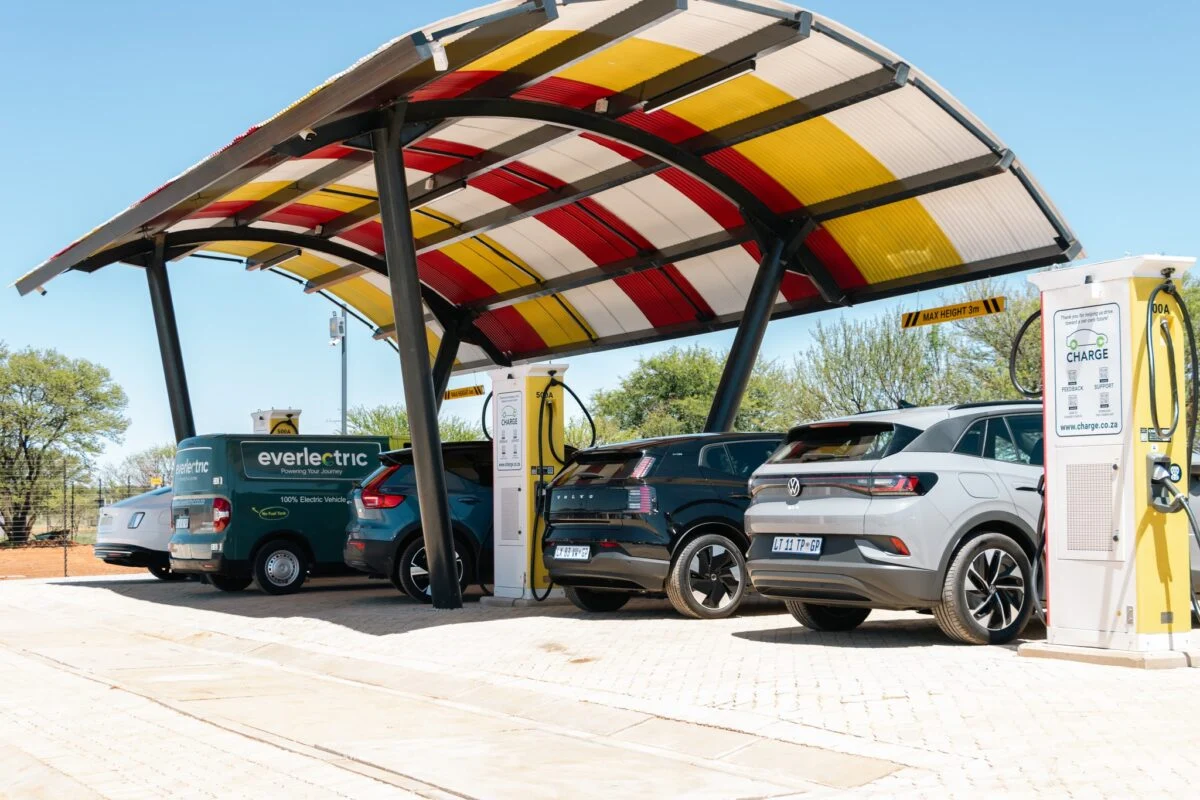Zero Carbon Charge (Charge) has received a R100 million injection from the Development Bank of Southern Africa (DBSA).
The company builds “climate resilient” electric vehicle (EV) charging stations that will assist South Africa in transitioning to a net-zero transport economy.
“This show of faith by the DBSA is not just financial — it is symbolic. We are truly grateful,” said Charge director and co-founder Andries Malherbe.
Charge said in a statement that the funding will allow it to set up a charging station every 150 kilometres along the country’s national roads to reduce range anxiety for EV drivers.
Each site is entirely off-grid, uses solar power to generate energy and is supported by battery storage, eliminating its reliance on Eskom, it added.
Charge unveiled its first off-grid charging station in Wolmaransstad at the end of 2024.
The DBSA’s Product Innovation Unit aims to back “catalytic infrastructure projects that deliver environmental and socio-economic returns.”
Charge believes it exemplifies this mandate by combining renewable energy, clean mobility, and inclusive rural development.
Lebogang Seperepere, DBSA’s acting group executive for project preparation, noted the impact that the investment will have on South Africa’s EV market and economy.
“As the DBSA, we continue to work with our partners to find solutions that benefit the economy and society at large,” he said.
“We are happy to have invested R100 million, which will not only assist in growing the EV market in South Africa but also create jobs, support the economy, and mitigate climate change.”
Charge said that while its charging stations will help stimulate the growth of clean transport, it also provides landowners with 5% of the revenue generated from selling electricity.
“I commend the DBSA for its unwavering professionalism and commitment throughout the due diligence process. We are honoured by their support and determined to deliver,” said Zero Carbon Charge founder Joubert Roux.Charge launched its — and South Africa’s — first fully off-grid electric vehicle (EV) charging station on 28 November 2024.
Completed almost exactly a year after beginning construction, the station is located next to the N12 between Klerksdorp and Wolmaransstad in the North West province.
A massive on-site solar farm consisting of 480 bifacial solar panels provides up to 280kW of electricity to the facility, which consists of a charging area and farm stall.
The station also has a 546kWh liquid-cooled battery to provide extra power when demand exceeds the solar farm’s capacity or during the evenings and prolonged periods without sufficient solar production.
In addition, Charge installed a 250kVA generator that runs on hydrotreated vegetable oil, which has 90% lower emissions than diesel, as a last-resort backup.
The charging area has six fast DC charging points supplied by Magic Power and Greencore Energy Solutions. Two slower AC chargers are located in parking spots next to the farm stall.
Four of the six DC chargers are liquid-cooled and theoretically capable of charging at up to 480kW each, over double the fastest charging speed previously available in the country.
The latest Porsche Taycan models recently launched in South Africa are the country’s fastest-charging EVs, supporting up to 320kW via DC.
When multiple cars are plugged in, the system intelligently distributes its output based on each car’s charging capability and state of charge.
Customers waiting for their car to charge can grab a bite or drink from a farm stall on the same premises.
The site also offers Wi-Fi connectivity so drivers can spend time online without worrying about data costs or limited cellular reception.
Below are photos of South Africa’s first off-grid EV charging station and its farm stall in North West.


